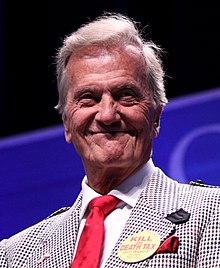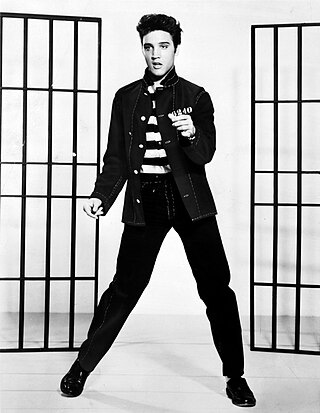
Elvis Aaron Presley, known mononymously as Elvis, was an American singer and actor. Known as the "King of Rock and Roll", he is regarded as one of the most significant cultural figures of the 20th century. Presley's energized performances and interpretations of songs, and sexually provocative performance style, combined with a singularly potent mix of influences across color lines during a transformative era in race relations, brought both great success and initial controversy.

Jailhouse Rock is a 1957 American musical drama film directed by Richard Thorpe and starring Elvis Presley. Adapted by Guy Trosper from a story written by Nedrick Young, the film tells the story of Vince Everett (Presley), a convict who learns the guitar while in prison and becomes a star following his release. Four of the film's songs were written by Jerry Leiber and Mike Stoller including the title track, which became a highly-praised production number in the film as well as one of Presley's biggest hit singles, spending seven weeks at number one on the U.S. charts.

This is a list of notable events in music that took place in the year 1957.
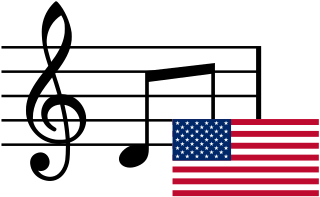
Many musical styles flourished and combined in the 1940s and 1950s, most likely because of the influence the radio had in creating a mass market for music. World War II caused great social upheaval, and the music of this period shows the effects of that upheaval.

David Alexander Hess was an American actor, singer, songwriter, and director. He came to prominence for his portrayals of murderous rapists, villains and gruff characters in several films in the 1970s and 1980s.

Loving You is a 1957 American musical drama film directed by Hal Kanter and starring Elvis Presley, Lizabeth Scott, and Wendell Corey. The film was Presley's first major starring role, following his debut in a supporting role in the 1956 film Love Me Tender. The film follows a delivery man who is discovered by a music publicist and a country–western musician who wants to promote the talented newcomer.

The Jordanaires were an American vocal quartet that formed as a gospel group in 1948. Over the years, they recorded both sacred and secular music for recording companies such as Capitol Records, RCA Victor, Columbia Records, Decca Records, Vocalion Records, Stop Records, and many other smaller independent labels.

John Daniel Sumner was an American gospel singer, songwriter, and music promoter noted for his bass voice, and his innovation in the Christian and Gospel music fields. Sumner sang in five quartets and was a member of the Blackwood Brothers during their 1950s heyday. Aside from his incredibly low bass voice, Sumner's business acumen helped promote Southern Gospel and move it into the mainstream of American culture and music during the 1950s and 1960s.
"April Love" is a popular song with music by Sammy Fain and lyrics by Paul Francis Webster. It was written as the theme song for a 1957 film of the same name starring Pat Boone and Shirley Jones and directed by Henry Levin.

"Million Dollar Quartet" is a recording of an impromptu jam session involving Elvis Presley, Jerry Lee Lewis, Carl Perkins, and Johnny Cash made on December 4, 1956, at the Sun Record Studios in Memphis, Tennessee. An article about the session was published in the Memphis Press-Scimitar under the title "Million Dollar Quartet". The recording was first released in Europe in 1981 as The Million Dollar Quartet with 17 tracks. A few years later more tracks were discovered and released as The Complete Million Dollar Session. In 1990, the recordings were released in the United States as Elvis Presley: The Million Dollar Quartet. This session is considered a seminal moment in rock and roll.
"Have I Told You Lately That I Love You?" is a popular song written by Scotty Wiseman for the 1944 musical film, Sing, Neighbor, Sing and performed by Lulu Belle and Scotty. It was their greatest hit and one of the first country music songs to attract major attention in the pop music field. Although the song was featured in the movie, it was not released by Lulu Belle and Scotty until 1947. The first released version of this song was by Gene Autry in 1945.
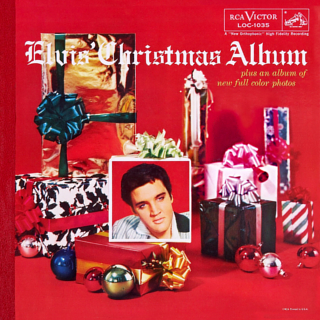
Elvis' Christmas Album is the third studio album and first Christmas album by American singer and musician Elvis Presley on RCA Victor, LOC -1035, a deluxe limited edition, released October 15, 1957, and recorded at Radio Recorders in Hollywood. It has been reissued in numerous different formats since its first release. It spent four weeks at No. 1 on the Billboard Top Pop Albums chart, and was the first of two Christmas-themed albums Presley would record, the other being Elvis Sings the Wonderful World of Christmas, released in 1971. The publication Music Vendor listed Elvis' Christmas Album on their singles charts for two weeks in December 1957 – January 1958, with a peak position of No. 49.

"Good Rocking Tonight" is a jump blues song originally released in 1947 by its writer, Roy Brown and was covered by many recording artists. The song includes the memorable refrain, "Well I heard the news, there's good rocking tonight!" The song anticipated elements of rock and roll music.

Bernardine is a 1957 American musical film directed by Henry Levin and starring Pat Boone, Terry Moore, Dean Jagger, Dick Sargent, and Janet Gaynor. The 1952 play upon which the movie is based was written by Mary Coyle Chase, the Denver playwright who also wrote the popular 1944 Broadway play Harvey. The title song, with words and music by Johnny Mercer, became a hit record for Boone.

Since the beginning of his career, American singer Elvis Presley has had an extensive cultural impact. According to the monthly magazine, Rolling Stone, "It was Elvis who made rock 'n' roll the international language of pop." The Rolling Stone Encyclopedia of Rock & Roll describes Presley as "an American music giant of the 20th century who single-handedly changed the course of music and culture in the mid-1950s". His recordings, dance moves, attitude, and clothing came to be seen as embodiments of rock and roll. His music was heavily influenced by African-American blues, Christian gospel, and Southern country. In a list of the greatest English language singers, as compiled by Q magazine, Presley was ranked first, and second in the list of greatest singers of the 20th century by BBC Radio. Some people claim that Presley created a whole new style of music: "It wasn't black, wasn't white, wasn't pop or wasn't country—it was different." As most singers in his time created music geared for adults, he gave teens music to grow up with.
"Blue Hawaii" is a popular song written by Leo Robin and Ralph Rainger for the 1937 Paramount Pictures film Waikiki Wedding, starring Bing Crosby and Shirley Ross. Crosby recorded a version with backing by Lani McIntyre and His Hawaiians, which was released in 1937 as the B-side of "Sweet Leilani". This reached the No. 5 spot in the charts of the day during a 13-week-stay
This article includes an overview of the major events and trends in popular music in the 1950s.
Luther Dixon was an American songwriter, record producer, and singer. Dixon's songs achieved their greatest success in the 1950s and 1960s, and were recorded by Elvis Presley, the Beatles, the Jackson 5, B.B. King, Jerry Lee Lewis, Dusty Springfield, Jimmy Reed and others. As a producer, Dixon helped create the signature sound of the girl group the Shirelles.

During his career as a singer and composer, Pat Boone released 63 singles in the United States, mostly during the 1950s and early 1960s when Boone was a successful pop singer and, for a time, the second-biggest charting artist behind Elvis Presley according to Billboard. Boone has had over 25 singles reach the top 20 on the U.S. singles charts, including the number-one hits "Ain't That a Shame" (1955), "I Almost Lost My Mind" (1956), "Don't Forbid Me" (1957), "Love Letters in the Sand" (1957), "April Love" (1957), and "Moody River" (1961). "I'll Be Home" (1956) reached No. 1 in the UK. He set a Billboard record, which he still holds, for spending 220 consecutive weeks on the charts with one or more songs each week.
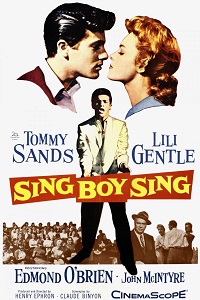
Sing Boy Sing is a 1958 American musical drama film released by 20th Century-Fox and starring newcomers Tommy Sands and Lili Gentle.







